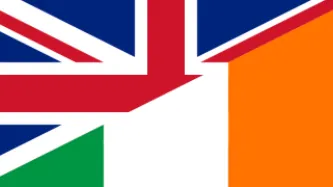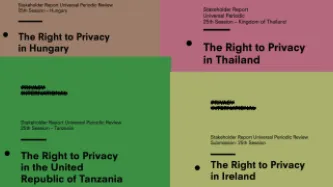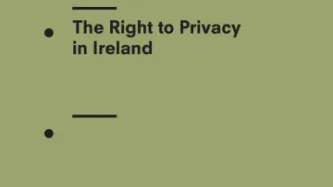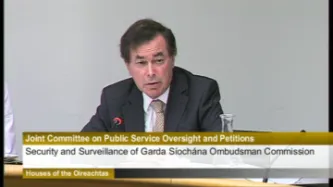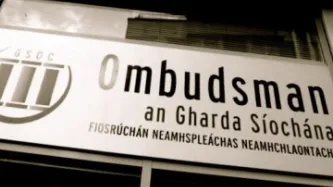Search
Content type: Examples
A study describes the data transmitted to backend servers by the Google/Apple based contact tracing (GAEN) apps in use in Germany, Italy, Switzerland, Austria, and Denmark and finds that the health authority client apps are generally well-behaved from a privacy point of view, although the Irish, Polish, Danish, and Latvian apps could be improved in this respect. However, the study also finds that the Google Play Services component of the apps contacts Google servers as often as every 20 minutes…
Content type: Examples
More than 725,000 people downloaded Ireland’s COVID-19 tracker and contact tracing app, Covid Green, within 24 hours of its launch, according to the Health and Safety Executive. Minister for Health Stephen Donnelly stressed that the app, which was developed by the Waterford company Nearform, was not a “silver bullet” but would enhance other contact tracing measures and urged everyone to download it as it would help keep schools and offices open by reducing the time it takes to trace close…
Content type: Examples
Ahead of the Irish referendum to amend the Constitutions of Ireland to allow the parliament to legislative for abortion which took place in May 2018, Google decided to stop all advertising relating to the referendum on all of its advertising platforms, including AdWords and YouTube.
This followed decisions by Facebook to no longer accept advertising relating to the referendum funded by foreign organisations outside Ireland, and Twitter not allowing any advertising in relation to the…
Content type: News & Analysis
The Irish Data Protection Commissioner has made a ruling on the controversial Public Services Card (PSC) that has described much of what is is done with the card as unlawful. The PSC has proven controversial: introduced in 2012 for welfare claimants, it's use expanded to more and more uses, including its use to get a driving licence or passport. Now, following campaigns from civil liberties organisations, this expansion of use has now been found to be unlawful by Ireland's Data Protection…
Content type: Examples
In Ireland benefits claimants are expected to register for a Public Services Card (PSC) in order to access benefits. PSC users are expected to have their photographs taken in department offices, which is then digitally captured along with their signature. While this card was originally created to prevent benefits fraud – by insuring someone could not register twice to claim benefits – it is increasingly being used as a de facto form of ID and citizens have been apply for PSC even when they do…
Content type: News & Analysis
Email addresses
Acxiom: [email protected]
Criteo: [email protected]
Equifax: [email protected]
Experian: [email protected]
Oracle: https://oracle.ethicspointvp.com/custom/oracle/dp/en/form_data.asp
Quantcast: [email protected] cc: [email protected]
Tapad: [email protected]
Letter for Acxiom and Oracle
subject line: Right to Erasure Request
I am concerned your company exploits my data.
In accordance with my right[s] under the General Data…
Content type: Press release
Today, Privacy International has filed complaints against seven data brokers (Acxiom, Oracle), ad-tech companies (Criteo, Quantcast, Tapad), and credit referencing agencies (Equifax, Experian) with data protection authorities in France, Ireland, and the UK. Privacy International urges the data protection authorities to investigate these companies and to protect individuals from the mass exploitation of their data.
Our complaints target companies that, despite exploiting the data of millions of…
Content type: Long Read
Image: Eric Jones
The UK government last week hosted hundreds of surveillance companies as it continues to try and identify “technology-based solutions” able to reconcile the need for controls at the Irish border with the need to avoid them.
The annual showcase conference of 'Security and Policing' brings together some of the most advanced security equipment with government agencies from around the world. It is off limits to the public and media.
This year’s event came as EU and UK…
Content type: News & Analysis
The recent announcement by the Minister for Justice that serious and organised crime will receive legislative attention from the Government and the Oireachtas is most welcome. However, the stated means of achieving this are deeply concerning for the Irish public and larger digital economy. The statements indicate that the Government intends to follow the British model of surveillance where Irish companies can be compelled to betray their users. Why would any user engage with a…
Content type: News & Analysis
Over the next two weeks, the 25th session of the Universal Period Review Working Group will take place in Geneva. The Universal Period Review is a key mechanism of the UN Human Rights Council to remind UN Member States of their responsibility to respect and implement all human rights and fundamental freedoms.
Amongst others, Hungary, the United Republic of Tanzania, Thailand, and Ireland will be reviewed. Privacy International, in collaboration with national civil society…
Content type: Advocacy
This stakeholder report is a submission by Privacy International (PI) and Digital Rights Ireland Ltd. (DRI). PI is a human rights organisation that works to advance and promote the right to privacy and ght surveillance around the world. DRI is an Irish group dedicated to defending civil, legal and human rights in a digital age. PI and DRI wish to bring concerns about the protection and promotion of the right to privacy in Ireland before the Human Rights Council for consideration in Ireland…
Content type: News & Analysis
The 'GSOC saga' began a number of weeks ago with the revelation that the oversight body of the Irish police force, the Garda Siochana Ombudsman Commission (GSOC), may have been the target of sophisticated electronic surveillance. A security company, Verrimus, found that there was evidence that an IMSI Catcher device may have been deployed in the vicinity of GSOC's offices which could have intercepted all mobile phone communications of its officers and anyone visiting the offices. Following the…
Content type: News & Analysis
The recent revelations surrounding the bugging of the Garda Siochana Ombudsman Commission (GSOC) has raised a number of important questions about the use of surveillance technologies in Ireland, including whether fake base stations were deployed in order to monitor mobile networks near GSOC's office.
First, some background. The Garda Siochana are the Irish police force and are overseen by GSOC, who have investigated members of the police force on a number of occasions. Approximately a year ago…




